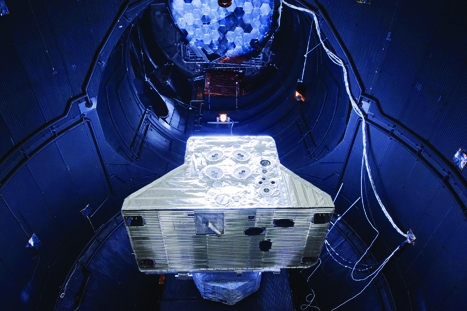It can sometimes seem like engineering lacks ambition. The importance of practicality, safety margins and keeping within budget can make it look like the discipline is overly conservative, unwilling to take risks, even unimaginative. This issue, however, includes projects that nobody could possibly call unambitious.
Planetary exploration must be the ultimate expression of ingenuity. The goal of sending human-made objects where we have never been before, to seek knowledge that we’ve never had access to, to find out more about our own origins - it’s a powerful driver. In our cover feature, we talk about the challenges of planetary exploration engineering in the current economic climate and the threat this poses to the collaborative research that’s so vital to large, expensive projects.
Space engineering has an odd place in the overall sector, especially when it comes to the science-driven missions rather than the more hard-nosed commercial sector, which is dominated by the communications industry. Some people — including, it seems, many politicians — regard space exploration as a bit of a luxury. It’s nice to be able to do it, but it’s not vital. It doesn’t have much of a pay-off.

But this, as my conversation with NASA Jet Propulsion Laboratory director Charles Elachi shows, isn’t true. Exploratory missions provided the basis for mobile phone technology; for detectors and scanners used in medicine and security; and for lightweight robots that are increasingly being used in cancer surgery. The mobile communications sector alone makes enough profit to justify whatever the initial investment was in the original technology, which was developed to keep in contact with probes heading outside Earth’s orbit.
“Exploratory space missions provided the basis for mobile phone technology and for scanners used in medicine”
Now, even Elachi will cheerfully admit that the development of useful technology is serendipitous. It isn’t the first thing he mentions when you ask him why planetary exploration is important. It isn’t even the second. Wouldn’t these technologies have been developed anyway, by targeted research into strategically important industrial niches Ñ the way that governments would prefer engineering research to be carried out?
Maybe they would. Elachi thinks not, though. For him, the key to innovation is to give a bunch of clever people a goal that’s pretty much impossible. Then you have to invent things; and when you invent things, there will be other uses for them.
We don’t understand creativity. We don’t know where it comes from or how it works. But it might be that imaginative humans just aren’t good at aiming for very specific goals; they need a big, enticing, inspiring target to aim at. Think of space research as an innovation hothouse and it starts to make a lot more sense as a vital part of the engineering sector.




Glasgow trial explores AR cues for autonomous road safety
They've ploughed into a few vulnerable road users in the past. Making that less likely will make it spectacularly easy to stop the traffic for...